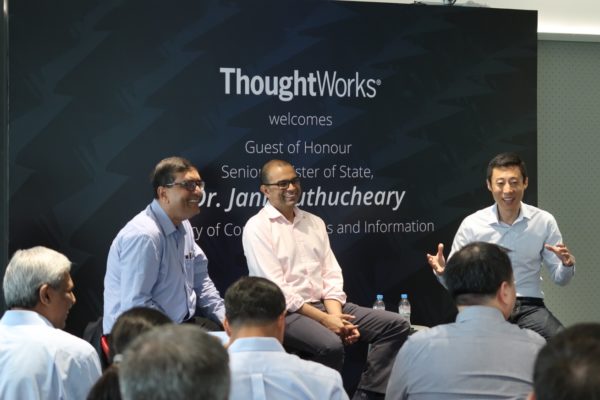
With Industry 4.0, which signals the dawn of the digital economy, new innovations are emerging quickly and testing the regulatory environment. The Singapore government’s response is to use “sandboxes” as controlled environments to verify and validate the new innovations.
Senior Minister of State for Communications and Information and Transport, Dr Janil Puthucheary, said this is a light regulatory touch where the government is prepared to suspend its disbelief around new ideas.
“It is not defensive or reactive, it shows we’re prepared to do a regulatory change, that we’re proactive for an agile policy development,” he said at a panel discussion examining Singapore’s digital journey and public-private partnership in talent development.
With the sandbox concept, it is working closely with the private companies to learn more about the new innovations and their impact on organisations, he added. “Sandboxes allow both private and public sectors to work together to build products.”
The reality, he said, is that regulations are never going to catch up with the speed of innovations.
However, with the sandbox model, he noted that “we’re already thinking innovation that is going to happen and preparing how we are going to put a regulation around it”.
The panel discussion was organised by Thoughtworks, a privately-held global software design and consultancy company with 5,000 employees worldwide.
Talent is a big consideration in innovation, said Thoughtworks CEO Guo Xiao, adding that with the speed of change in the digital economy, the speed of acquiring new skills and creativity are two most important points for employees to consider.
“When we look for people, we look for the ability to learn, having curiosity and creativity,” he said, adding that fresh graduates need to learn cognitive skills including critical thinking before they can be productive.
He pointed out that the biggest problem is not about learning because online learning allows people to pick up skills quickly. Rather, he noted, it is about employers giving workers the tools and the space to be creative.
Dr Janil agreed, adding that the app developers who work with the Govtech agency in Singapore told him that they had picked up their own technical skills.
They could be economists or anthropologists who are interested in programming. To learn the skills, they go to YouTube and attend formal courses.
“Their pay could be the same as their previous companies but they now enjoy their job”, said Dr Janil, who is also the minister-in-charge of Govtech.
He also said that talent development should also be a responsibility shared between the public and private sectors.
Efforts are being made to get the tertiary institutions to do more in reskilling and upskilling workers. Private companies like Thoughtworks are also collaborating with the government on various programmes from on-the-job training to upskilling.
Explaining a shift in the way the government looks at public sector ICT procurement, Dr Janil said such projects provide economic benefit and opportunities for manpower development.
Through ICT procurement, the government is engaging smaller local companies who get a chance to train their workforce in the process of fulfilling the public sector projects, he added.






